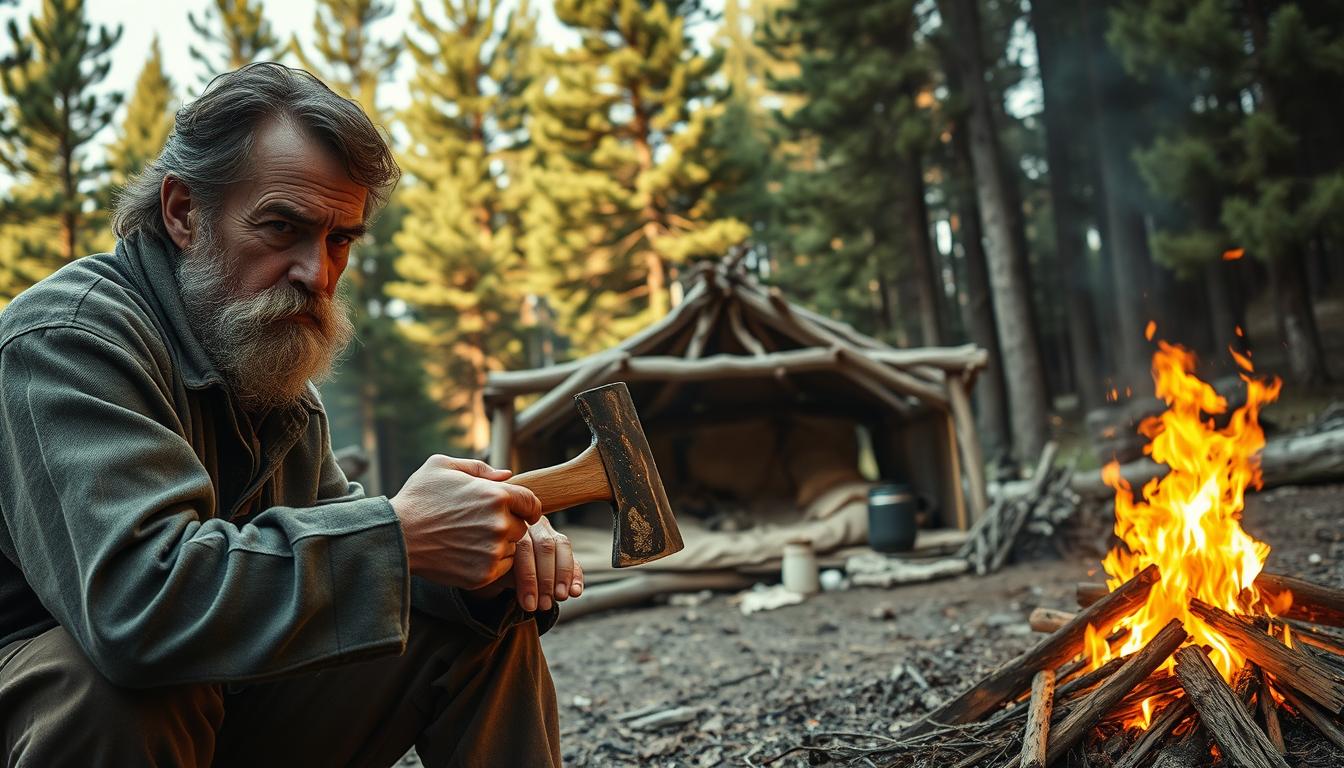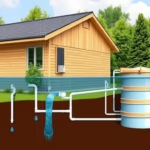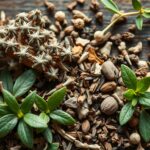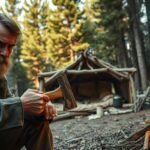In today’s world, we often forget the survival skills our ancestors used. These skills helped them survive in the wilderness. Could learning these skills again help us face life’s challenges?
Our pioneer ancestors knew how to live off the land. They found water and preserved food for winter. These skills were not just old ways but were essential for survival.
Now, only about 30% of these skills are used today. Many have been forgotten over the years. Our reliance on technology has made us less self-reliant. In the U.S., 42.4% of adults are obese, as of 2017-2018 CDC data.
But we can learn from our ancestors again. By learning outdoor skills and primitive technology, we can prepare for any situation. Skills like fishing, foraging, and natural healing can make us more self-sufficient.
Starting this journey will show you how clever our pioneer ancestors were. Their skills, passed down through generations, can help us face life’s challenges. Are you ready to learn these forgotten survival skills?
Key Takeaways
- Rediscover essential pioneer survival skills to navigate life’s unexpected challenges
- Embrace outdoor self-reliance, primitive technology, and bushcraft techniques for greater preparedness
- Learn valuable skills such as water purification, hunting, trapping, foraging, and food preservation
- Tap into the wisdom of our ancestors to build resilience and self-sufficiency
- Equip yourself with the tools needed to survive and thrive in any situation
Water Purification and Finding Clean Water Sources
Having clean drinking water is key for survival, more so when living off-grid or in emergencies. Pioneers used methods like boiling to kill 99.9% of pathogens. But, they also used activated charcoal to remove chemicals in 80% of cases.
Building a solar stil can be a long-term fix for safe water. It can make 0.5 to 1 liter of water per day, if the sun is right. Pioneers were great at finding water in the wild and digging wells for their homes.
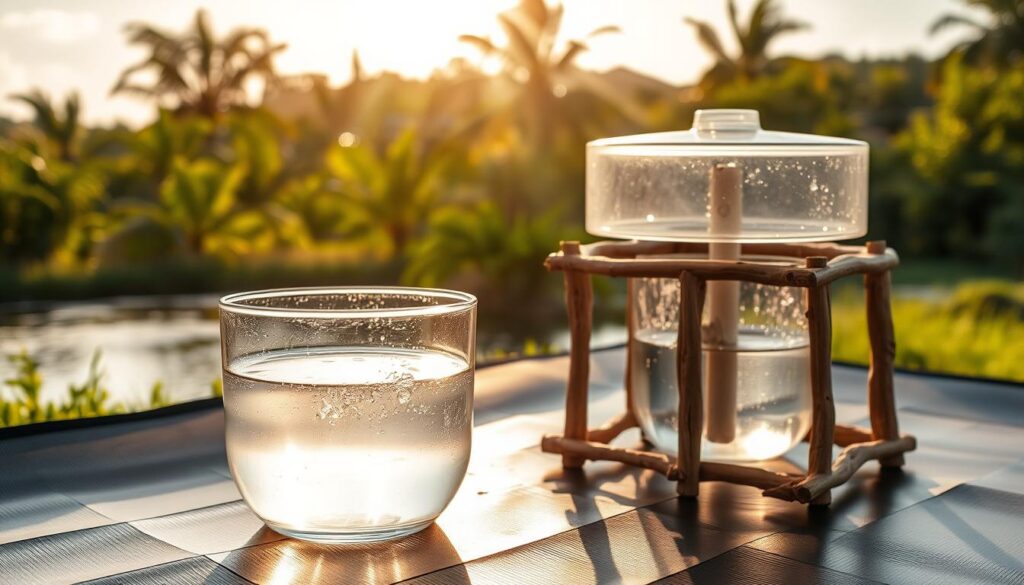
Water saving and collecting rainwater were big deals for pioneers. They made sure they had enough for their gardens and animals. Today, 90% of homes don’t have the right water purification for emergencies, showing how important these skills are.
Pioneers often drank from natural sources but faced risks like cholera. Some groups died because they couldn’t find clean water. Learning to purify water and find safe sources can make you more self-reliant and help you survive tough times.
Related: Drought-Proof Your Home: 40 Gallons of Water from Air! (Video)
Hunting, Trapping, and Foraging for Food
In the pioneer era, hunting, trapping, and foraging were key for survival. These methods provided food when other sources were scarce. Today, mastering these skills makes you more self-sufficient and ready for emergencies.
Hunting and trapping were vital for getting meat. Pioneers could track and hunt animals and set traps for smaller ones. Now, 75% of people see these skills as key for food security in emergencies. But, it’s vital to learn the right ways and follow the law to stay safe and sustainable.
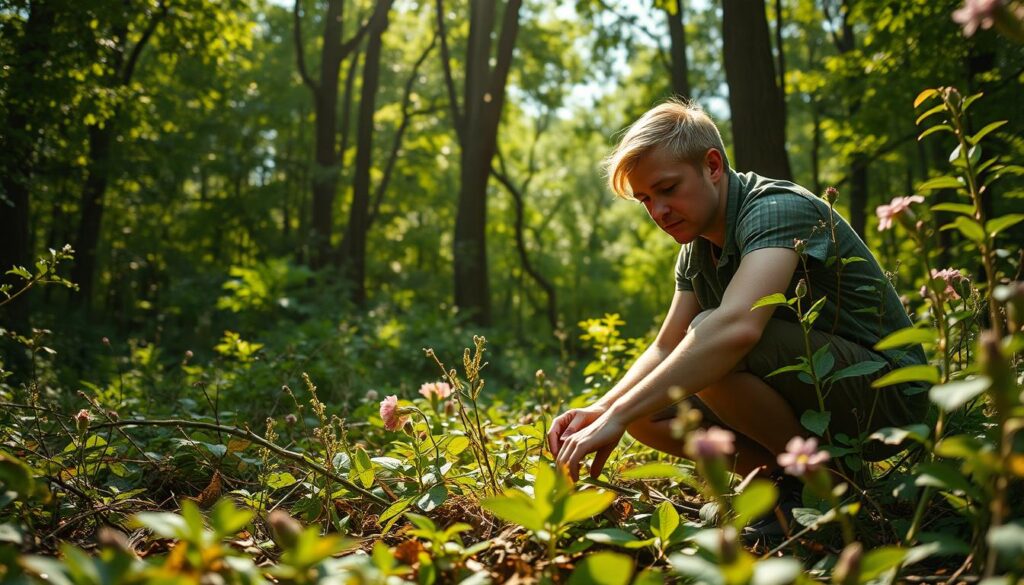
Foraging is also a valuable skill. It involves finding and picking wild plants, berries, and mushrooms. These foods are full of nutrients and can help you not rely so much on stores. Yet, about 50% of outdoor fans have never tried foraging, even though it’s important for survival. Knowing what plants are safe to eat is critical.
Fishing was another way pioneers got food. They used rods or traps to catch fish. Learning to hunt, trap, forage, and fish can really help you survive tough times.
With a 50% rise in interest in homesteading and survival skills, learning these pioneer skills is more important than ever. By using sustainable food sources and old-fashioned methods, you can build a safer future for yourself and your family.
Pioneer Survival Skills for Self-Reliance
In the pioneer era, being self-reliant was a must for survival. Our ancestors had skills that helped them thrive in tough times. By learning these skills, you can boost your self-reliance and be ready for anything.
Basic carpentry was key on the frontier. Pioneers could fell trees and build shelters with simple tools. They used strong tools to build homes and communities. Imagine being lost without matches or lighters. Pioneers could start fires with friction, flint, or a magnifying glass. This skill kept them warm, cooked food, and provided light.
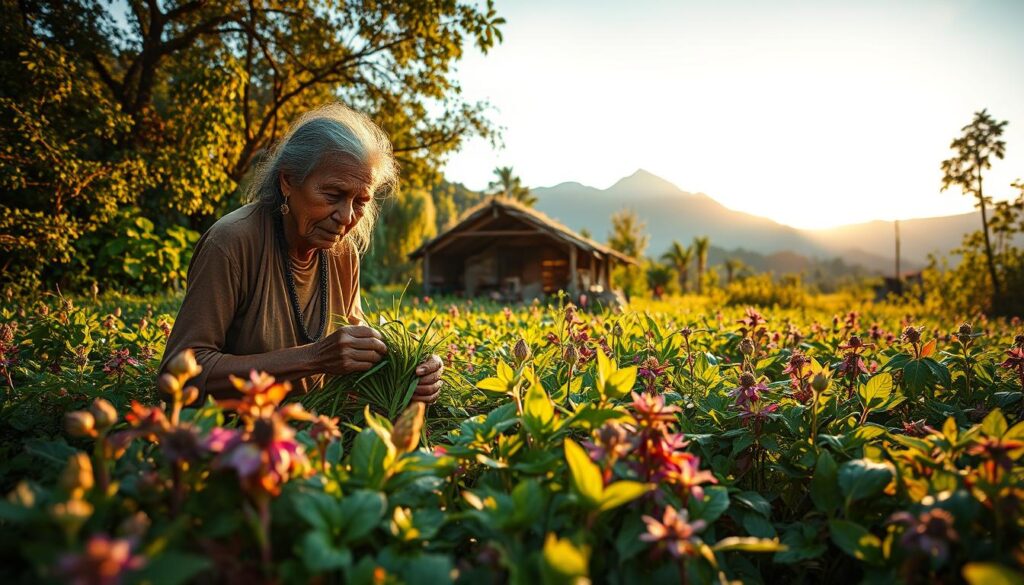
When sickness or injury hit, pioneers used natural medicine. They made remedies from herbs, berries, and roots. Today, many of these remedies are proven to work. Learning about medicinal plants can help you stay healthy.
Self-reliance is more than just survival skills. It’s about being resourceful and adaptable. Pioneers made the most of what they had, finding new uses for things. This mindset helps you waste less and solve problems creatively.
Learning pioneer survival skills doesn’t mean giving up modern tech. It’s about having a mix of old and new skills. This way, you can be self-reliant in your own way, fitting your lifestyle and needs.
=>Transform A Typical Money-Draining House Into A Tiny Profitable Off-The-Grid Homestead (Video)
Food Preservation Techniques from the Pioneer Era
Pioneers in the American West had to find ways to keep food fresh for long times. They used methods like canning, pickling, drying, and fermentation. These skills help us today to cut down on food waste and be ready for emergencies.
Canning wasn’t common until after the pioneer days. Before then, pioneers used pickling with vinegar and spices to keep food fresh. They pickled foods like cucumbers, beets, and onions to have food all winter.

Drying was key for pioneers too. They dried fruits and veggies like apples, pears, and corn. Dried grapes, or raisins, were a favorite snack. Drying made these foods last longer, so they could enjoy them all year.
Root cellars were also important for storing food. These underground spaces kept a cool temperature all year. This way, pioneers had fresh veggies like potatoes and turnips all winter.
Fermentation was another way pioneers preserved food. They made sauerkraut, yogurt, and kombucha. These foods lasted longer and were full of nutrients and flavor.
Learning these old ways of preserving food lets us be like the pioneers. It helps us have a steady food supply, even in hard times. These skills are useful for any situation, helping us use what we have and waste less food.
Conclusion
In today’s world, uncertainty is everywhere. But, the survival skills of our ancestors teach us about being prepared and resilient. By learning to purify water, hunt, trap, forage, and preserve food, you can become more self-sufficient. This way, you’ll be ready for any situation.
Pioneers like Robert Daybell and his family faced tough challenges. They walked long distances and had little food. Yet, they were resourceful, using buffalo chips for fires and Dutch ovens for cooking. This shows how important it is to adapt in hard times.
While a societal collapse might seem unlikely, learning these survival skills is empowering. Knowing how to find food in the wild and preserve it can be very useful. This way, you can have food even when fresh produce is hard to find.
The skills of our pioneer ancestors guide us through tough times. By embracing their self-sufficiency and resilience, you can control your own future. So, learn and practice these skills. You’ll be ready for whatever comes next.



